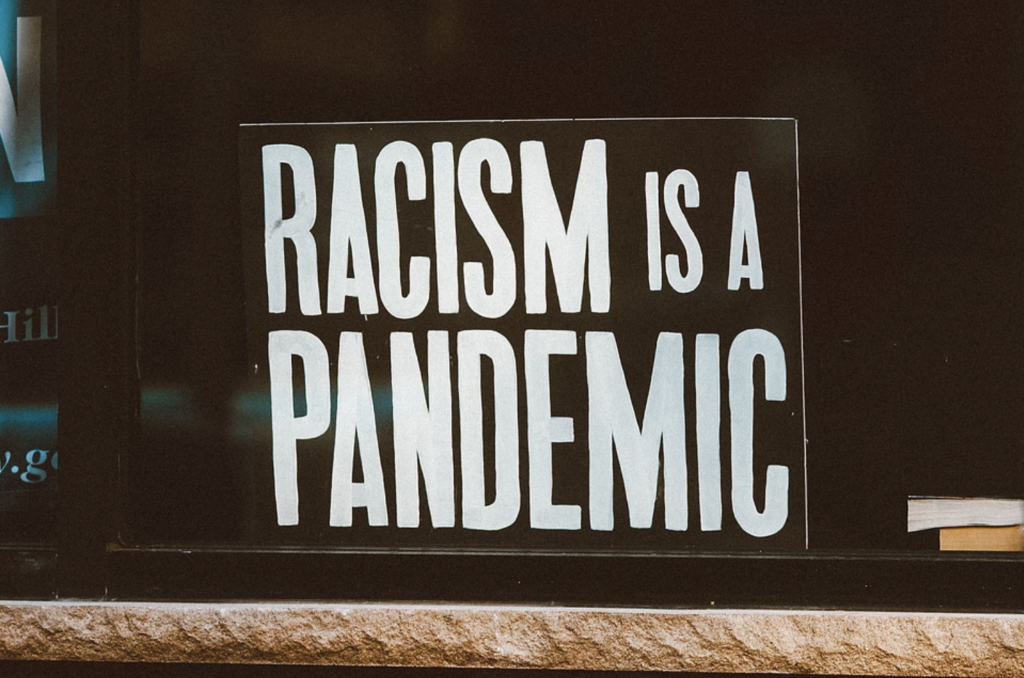With my thumbs fiercely texting, I hit “Send” – transmitting a message to my colleague complaining about the mismanagement of a patient I had just seen.
The iPhone bubble with its dancing dots quickly appeared as I stared at my phone awaiting her response.
“Was she Black?” my White colleague responded. Then quickly followed with, “I say this because that is what’s wrong with this world.”
“Was she Black?”
“Was she Black?”
“Was she Black?”
The question reverberated throughout my mind over and over and over during my short drive home. Even my young, White colleague, in her brief career, had already come to realize one of the major risk factors for mismanagement in medicine: Black race.
Shaking the painful realization from my mind, I opened my laptop only to then read the news of Dr. Chaniece Wallace. Dr. Wallace was me. She was young. She was a doctor. She had just given birth to her first child. She was Black. But unlike me, Dr. Wallace is dead.
While I am not privy to all of the details surrounding Dr. Wallace’s death, I do know she died only hours after giving birth to her baby girl. Dr. Wallace, like me, was Black and pregnant in the U.S. – a recipe for a disaster!

American women die at a higher rate during childbirth than any other developed nation. Sadly, Black women fare even worse having a mortality rate more than 3 times greater than White women in the United States. Among Black women, those who are college educated have an even higher mortality rate! In fact, Black women with a college-degree, like Dr. Wallace, are 5.2 times more likely to die from a pregnancy-related complication in the U.S. than their White counterparts. Remarkably women in Uzbekistan, China, Mexico, Cuba, Egypt and Thailand, all have a lower rate of maternal mortality than Black women in the United States.
Among the pregnancy-related deaths in the United States, 67% are preventable. Undoubtedly, if we consider racism ‘a preventable cause,’ then an even greater proportion of maternal deaths in Black women would be classified as such. Institutional racism and discrimination resulting in income inequality, residential segregation and psychosocial stress are all complexly intertwined leading to this carnage of Black women.
While we must continue to seek the eradication of systemic racism in all facets of our lives; unfortunately, we will not undo more than 400 years of racism overnight or even within the 40 weeks it takes to carry a baby to its due date. Therefore, as a patient, a loved one or even a healthcare provider for Black women, what can you do to save a life?
As a patient …

1. Trust your body
As women, we are perfectly designed to usher new life into this world. Our uteruses stretch to almost 500 times their original size, while our pelvic bones become flexible enough to allow the passage of a watermelon. Yet, we must do our part to trust and respect this temple.
A healthy pregnancy starts before your first missed period. So, embracing a healthy lifestyle prior to conception is vital. In preparation for pregnancy, women of all races should …
· Maintain a healthy diet and weight
· Be physically active
· Discontinue tobacco, alcohol and other drug use
· and, prevent physical and psychological injury
Additionally, women should work with their physicians to optimize any preexisting medical conditions they may have, e.g. diabetes, hypertension and thyroid disease, before becoming pregnant. Often, due to systemic racism, Black women have less access to healthcare and receive poorer quality healthcare compared to other women in the U.S. And as studies have shown time and time again, women entering a pregnancy with multiple medical conditions have a higher rate of subsequent complications and mortality.
As the patient, however, control what you are able to and prepare your body the best you can for cultivating this new life.

2. Trust your doctor
Not only do Black women in the U.S. have less access to healthcare, when they do receive prenatal care the quality is poorer. This is illustrated by rushed prenatal visits and even unnecessary and unwanted Cesarean deliveries, which leads to an increased risk for complications, including a higher risk for mortality.
After optimizing your own health, the most important thing you can do as a patient is choose a medical provider you feel comfortable with and trust. Yes, your physician will deliver your baby; but as an obstetrician, my role is greater than that. I am here to counsel you on the decisions you will make throughout your pregnancy and after. I am here to notice some of the first signs of developing disease. And, I am here to be your advocate! If you do not feel comfortable with or trust your provider, you will not listen to the advice they give you, which can at times be a life or death decision.
So, as the patient don’t be afraid to seek new care, if there is something you are uncomfortable with. However, once you have found a provider you trust, ensure they practice evidence-based medicine and then listen to their recommendations.

3. Trust your gut
We all have heard the story of Serena Williams, who developed a blood clot in her lungs after the birth of her daughter and then asked a nurse for blood thinners and a CT scan, only to be told she was confused from pain medications. Or, the story of Kira Johnson, Judge Hatchett’s daughter-in-law, who sat in increasing pain after birth with blood pouring from her catheter for seven hours before being taken back to the operating room where three liters of blood were found in her abdomen and she bled to death. It is disheartening to think if this is how rich and famous Black women are treated, what about the rest of us?
A quarter of Black women report abuse and disrespect from medical professionals in the hospital, compared to 17% of White women, and this number was even higher if her partner was also Black. If you feel that something isn’t right during your hospitalization, speak up. If you are not satisfied with the response you receive, ask for your doctor – the one you selected because you trusted them, remember they are your advocate!
As a healthcare provider …

1. Know your yourself and your patient
Given in the U.S. we have the most expensive healthcare system on the planet, yet the worst outcome for maternal mortality of any developed nation, it is apparent a systemic overhaul is needed. However, until such an overhaul is implemented, we must each recognize the part we individually play.
Everyone has biases and that doesn’t make us bad people. However, not recognizing our biases can lead each of us to make bad decisions. In 2016, a study was done that illustrated racial biases in medicine. In this study, they found that 50% of physicians-in-training held false beliefs about the biological differences between Black and White people. Given these implicit biases, it is understandable why the care of Black people is unequal and many times harmful.
While few of us would openly admit we have racial biases, it is important to at least see this as a possibly and actively work to treat all of our patients equally. Implementing protocols for the management of patients can help to eliminate racial bias. However, there is no replacement for taking the time to get to know your patient. Not only will this partnership between you and your patient help to eliminate stereotypes, but it will also help foster trust between the two of you!

2. Know the warning signs
Any delivering provider knows on labor and delivery there is blood, pain and with pain expected spikes in blood pressure. However, given among the most common causes of maternal death are hemorrhage and hypertensive disorders of pregnancy, identifying women at risk for complication versus those experiencing routine labor can at times be complex. It is important to not only recognize the early signs of pregnancy complications but also to act on these signs. Additionally, identify patients with risk factors for obstetric disease and monitor them closely. And remember, until we undo systemic racism, black race is a risk factor for obstetric disease!

3. Know when a C-section is needed
Women are three times more likely to die during a C-section compared to a vaginal delivery. While C-sections are often needed to prevent significant injury to the mother and/or baby, use evidence-based medicine to decrease the number of unnecessary C-sections you are performing. The women mentioned above, Dr. Chaniece Wallace, Serena Williams and Kira Johnson, all had C-sections. While they all may have been medically necessary, just think if Dr. Wallace or Kira Johnson’s was not warranted – that could be one more mother rocking her baby to sleep at night, one more mother cheering on the sidelines and one more mother to wipe away her child’s tears.
We are not only robbing Black mothers of their lives, we are cheating these children out of the opportunity to grow up with the one woman who will love them unconditionally. While we continue to fight to end systemic racism, we each must do our part to show Black Mamas Matter!

